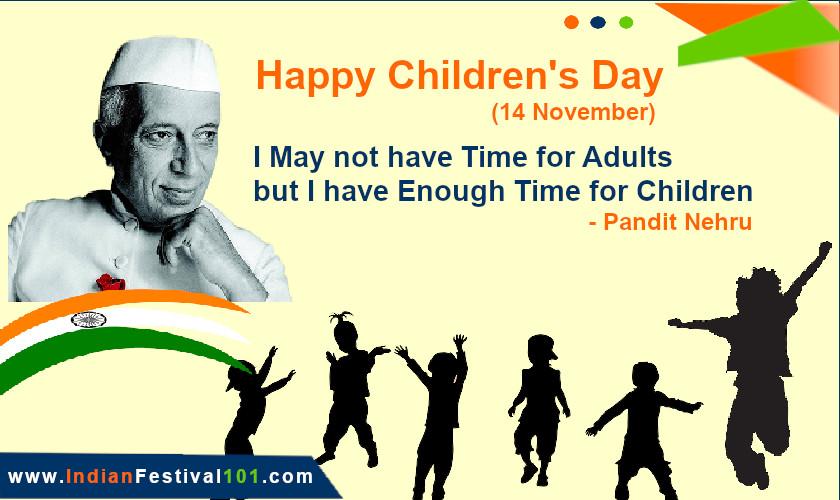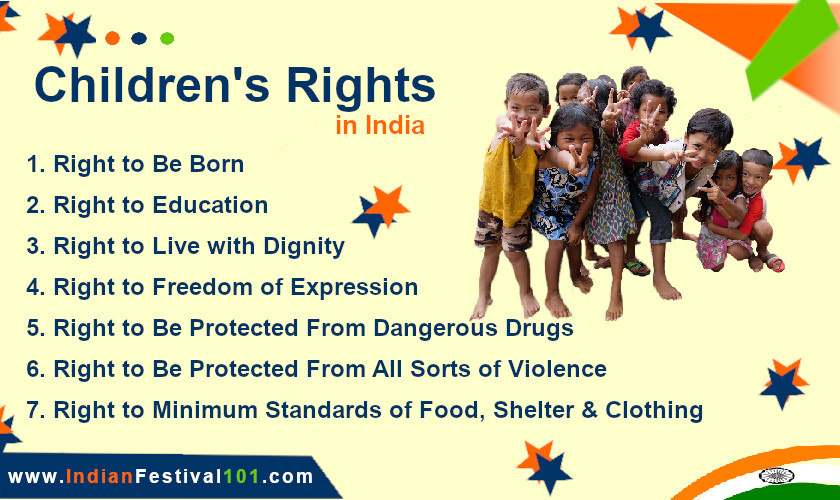Children’s Day in India is celebrated annually on November 14th every year. It is a poignant tribute to the nation’s youngest citizens. This special day marks the birth anniversary of Pandit Jawaharlal Nehru, the first Prime Minister of India. Known as Chacha Nehru, his deep affection for children transformed this occasion into a celebration of their innocence, dreams, and rights. Across the country, schools and communities come alive with vibrant events and cultural programs, resonating with the collective resolve to nurture a generation that will shape the future of the nation.
Children’s Day is also known as Bal Diwas. Uncle Nehru was very fond of children and roses. According to Jawaharlal Nehru, children should be nurtured with care and love because they are the future of the nation and the citizens of tomorrow. These are the strengths of the country and the foundation of society.
Pandit Jawahar Lal Nehru & Children
Jawaharlal Nehru had high hopes and confidence in the children of India because they could “think together and play together.” He founded the Children’s Film Society of India in 1955 so that Indian children could represent them. He was able to establish several prominent educational institutions in India. His vision led to the establishment of AIIMS for treatment, IITs in engineering, and IIMs for management research. Nehru’s legacy continues to educate children in India. “Today’s children will make India tomorrow. The way we bring them forward will determine the future of the country,” he said.

His philosophy is expressed in her letters to Indira Gandhi, her daughter when she was a young girl. The letters were also published as books. His Daughter from the Father (1999) and Glimpse’s Letter of World History (1934) gained a reputation as children’s non-fiction because Deepa Agarwal wrote that “any child can respond to their warm, affectionate tone and her attractive and spontaneous style.”
Significance Of Children’s Day
Children’s Day in India: We celebrate Children’s Day on Nov 14 every year to raise awareness regarding children’s rights to supply adequate education and take care of all. Children are the foundation on which the future of the human race stands. Their well-being and growth collectively ensure the development of all humanity. The legacy we tend to work to create is within the hope that one day future generations will reap its advantages. That is why every year, we celebrate National Children’s Day, known as ‘Children’s Day,’ on November 14, to raise awareness about children’s rights and to provide adequate education and care for all.
In addition to paying tribute to Pandit Jawaharlal Nehru on Children’s Day, the celebration speaks of children’s rights, care, and education. Uncle Nehru said: “Today’s children will make India tomorrow. The way we present them will determine the future of the country. The first Prime Minister of India had a clear vision of what modern India should look like, and he began to realize his dreams by erecting strong pillars that would support the newly independent country.
Children’s Day is celebrated on November 14 every year to raise awareness about children’s rights and education. India’s first Prime Minister, Jawaharlal Nehru, was born on this day in 1899. India has been celebrating Children’s Day since 195, but it was celebrated on November 20. After the death of the Prime Minister, his birthday of remembrance was chosen as the date for Children’s Day in India.
History of Children’s Day in India
Children’s Day was first observed on November 20, declared Universal Children’s Day by the United Nations. Still, after the death of Jawahar Lal Nehru in the year 1964, the Indian parliament passed a resolution to mark the first Prime Minister’s birth anniversary as Children’s Day. Pandit Jawahar Lal statesman was born on Nov fourteen, 1889; he thought of kids, the nation’s future, and also the voters of tomorrow. “The kids of these days can build the Asian country of tomorrow. The way we bring them up will determine the future of the country,” Jawahar Lal Nehru had once said.
Children’s Day Celebration
Why Should We Celebrate Children’s Day?
India celebrates Children’s Day, also known as ‘Bal Diwas,’ every year on November 14 with much fun and frolic. On this day, India’s first Prime Minister, Pandit Jawahar Lal Nehru, was born. The day could be a tribute to him, lovingly known as Chacha Nehru due to his fondness towards youngsters. It’s that point of the year when we walk down memory lane and celebrate the presence of those very few stars who make our lives beautiful. This year, it coincides with Diwali, the festival of lights.
Children’s Day Celebration in School
To celebrate Uncle Nehru’s birth anniversary, schools in India organize fun and inspiring events, including fancy dress competitions, recitations, and outdoor lectures. Children are the centre of attraction on this day. Many schools have a party on this day to feel special. Kids have fun activities on this day, from great morning gatherings to dance parties.
On this day, chocolates and gifts are distributed to children. Schools and educational institutes celebrate this day by organizing cultural programs, debates, and quizzes across the country. Still, this year due to the novel coronavirus pandemic, the celebrations will be subdued.
Children’s Day is not a gazetted holiday. In contrast, schools host various events to celebrate the day, including competitions, music, and dance performances.
Children’s Rights In India | 10 Rights of A Child

According to the Constitution of India, children’s rights include:
- The right to early childhood care and education
- The right to be protected from any dangerous employment
- The right to equal opportunities and facilities for development in a healthy way
- The right to free and compulsory primary education for all children aged 6-15 years
- The right to freedom and dignity and the protection of childhood and youth against exploitation
- The right to be protected from economic necessity to enter occupations that are not necessary for their age or strength
Children’s Day Celebration Around The World
Children’s Day was started in 1877 in Chelsea, USA, by the venerable Dr. Charles Leonard. Although Children’s Day is celebrated globally on June 1st by most countries worldwide, Universal Children’s Day is held on November 20th every year.
Conclusion
In summation, Children’s Day in India encapsulates a day of jubilation, reflection, and commitment to the nation’s future. As the colourful festivities and heartwarming celebrations draw to a close, the resonance of Jawaharlal Nehru’s advocacy for children’s rights lingers. It underscores the imperative to safeguard the innocence and potential of each child, fostering an environment where they can thrive. Beyond the festivities, this day serves as a catalyst for sustained efforts, urging society to prioritize the well-being and development of its youngest members. Children’s Day is not just a celebration; it’s a collective pledge to ensure a brighter, nurturing tomorrow for every child.
FAQs
Is Children’s Day a National Festival of India?
No Children’s Day is not a National Festival of India.
Who Called Nehru ‘Chachaji’?
There is no documented reason to call Nehru ‘uncle’. But it is said that his love for children was a significant factor behind the coinage of this word. Another popular version is that Nehru was very close to Mahatma Gandhi, whom he considered his elder brother. Gandhi was known as ‘Bapu,’ and Nehru was known as ‘Chachaji.’




